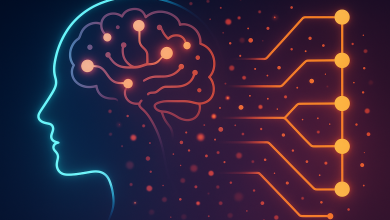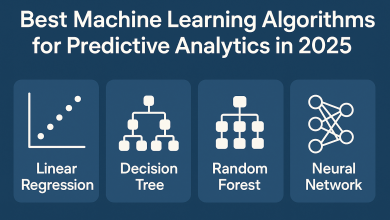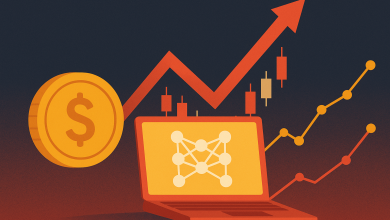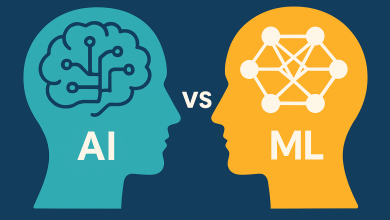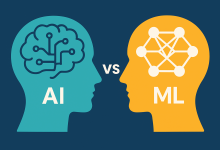Top Cloud Platforms for Machine Learning Deployment (AWS, GCP, Azure)
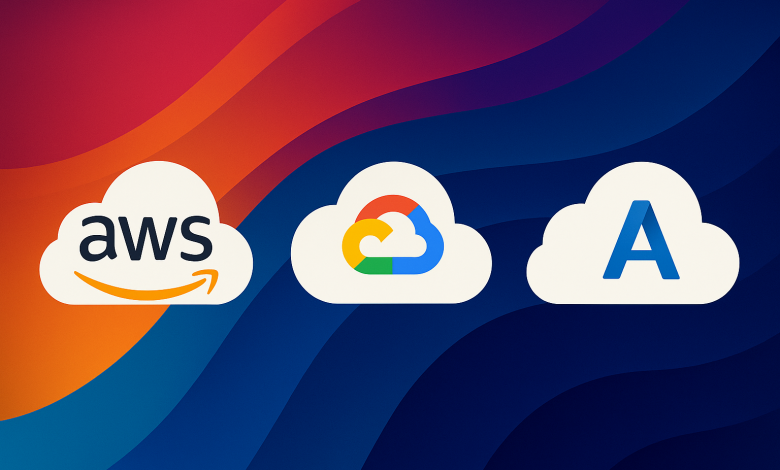
Introduction: Cloud ML Platforms Powering Industry Innovation
In 2025, businesses no longer ask “Should we use machine learning?” Instead, the real question is “Which cloud platform should we use for deployment?” With data pouring in from every direction, deploying machine learning at scale requires the speed, flexibility, and computing power that only the cloud can offer.
The leaders in this space—Amazon Web Services (AWS), Google Cloud Platform (GCP), and Microsoft Azure—are shaping the way industries adopt machine learning. But how do these platforms differ? And which one is best suited for your business needs? Let’s explore.
Why Cloud ML Deployment is Crucial in 2025
Machine learning thrives on massive datasets, complex algorithms, and continuous retraining. On-premise infrastructure often struggles to keep up. Cloud platforms solve this by offering:
- Scalability – Handle billions of data points effortlessly
- Flexibility – Deploy ML models anywhere, from edge devices to global servers
- Speed – Train and deploy models faster with pre-built infrastructure
- Cost Efficiency – Pay-as-you-go models lower the upfront investment
- Security & Compliance – Enterprise-grade protections for sensitive industries
For industries like healthcare, finance, retail, and manufacturing, cloud ML deployment isn’t just an advantage—it’s a necessity.
AWS: Dominating Enterprise ML Applications
Amazon Web Services (AWS) has long been the market leader in cloud computing, and its ML offering is no different. Amazon SageMaker is AWS’s flagship machine learning service, designed to help businesses build, train, and deploy ML models at scale.
Why AWS stands out:
- Wide ecosystem of AI/ML services integrated into AWS
- Enterprise-grade scalability for Fortune 500 companies
- Strong security and compliance certifications
- Pre-trained models for quick deployment
Industry Example:
In finance, banks use AWS SageMaker for fraud detection, risk scoring, and compliance automation. In manufacturing, AWS powers predictive maintenance to reduce downtime.
GCP: Leading in AI Research and Data Science
Google Cloud Platform (GCP) leverages Google’s deep expertise in artificial intelligence research. Its Vertex AI service brings together data science workflows, AutoML, and advanced ML operations (MLOps).
Why GCP stands out:
- Cutting-edge AI tools built on Google’s research breakthroughs
- Seamless integration with TensorFlow and other open-source frameworks
- Strong focus on data science and experimentation
- AutoML capabilities that reduce the need for heavy coding
Industry Example:
In healthcare, GCP helps hospitals with predictive patient care using AI-driven analytics. In retail, GCP powers personalized recommendation engines to boost e-commerce sales.
Azure: Trusted in Corporate and Hybrid Environments
Microsoft Azure shines in organizations that value enterprise integration and hybrid cloud solutions. Its Azure Machine Learning Studio offers user-friendly drag-and-drop tools as well as advanced ML capabilities for professionals.
Why Azure stands out:
- Strong integration with Microsoft ecosystem (Office, Dynamics, Power BI)
- Trusted in corporate environments with hybrid cloud needs
- Comprehensive governance and compliance controls
- Accessible ML Studio for both beginners and experts
Industry Example:
In marketing, Azure drives customer segmentation and campaign personalization. In government and enterprise, Azure’s hybrid model ensures sensitive data stays compliant while still leveraging cloud ML.
Industry-Specific Use Cases
- Healthcare
- AWS: Predictive maintenance for medical equipment
- GCP: AI-driven diagnostics using medical imaging
- Azure: Patient care optimization and hospital resource management
- Finance
- AWS: Fraud detection and real-time transaction monitoring
- GCP: Credit scoring with AutoML
- Azure: Compliance tracking and regulatory reporting
- Retail & E-commerce
- AWS: Demand forecasting for supply chains
- GCP: Personalized product recommendations
- Azure: Customer segmentation and loyalty program analysis
- Manufacturing
- AWS: Predictive equipment failure detection
- GCP: Supply chain optimization
- Azure: Smart factory automation with IoT + ML integration
Cloud ML Platforms and the Future of Business AI
As we move deeper into 2025, the lines between AWS, GCP, and Azure blur. Most enterprises adopt a multi-cloud strategy, combining the strengths of each platform. For example, a retail company may use GCP for personalization, AWS for demand forecasting, and Azure for enterprise compliance.
The future of machine learning deployment lies not in choosing a single platform, but in leveraging the best mix of cloud services to maximize innovation.
Conclusion
When it comes to the top cloud platforms for machine learning deployment (AWS, GCP, Azure), there is no one-size-fits-all winner. AWS dominates in enterprise scale, GCP leads in AI research and data science, and Azure excels in hybrid corporate environments.
For businesses, success comes from aligning the right platform with industry needs. The organizations that master this balance will stay ahead in the era of AI-powered transformation.
1. Which cloud platform is best for machine learning in 2025?
AWS is best for enterprise scale, GCP excels in AI research, and Azure is strong in corporate hybrid environments.
2. What is AWS SageMaker used for?
Amazon SageMaker is used to build, train, and deploy machine learning models at scale.
3. How is GCP different from AWS and Azure in ML?
GCP focuses on cutting-edge AI research and AutoML, making it ideal for data science teams.
4. Can Azure handle predictive analytics for enterprises?
Yes. Azure Machine Learning Studio is widely used for enterprise predictive analytics, especially in corporate settings.
5. Do businesses use multiple cloud platforms for ML?
Yes. Many companies adopt multi-cloud strategies to combine the strengths of AWS, GCP, and Azure.